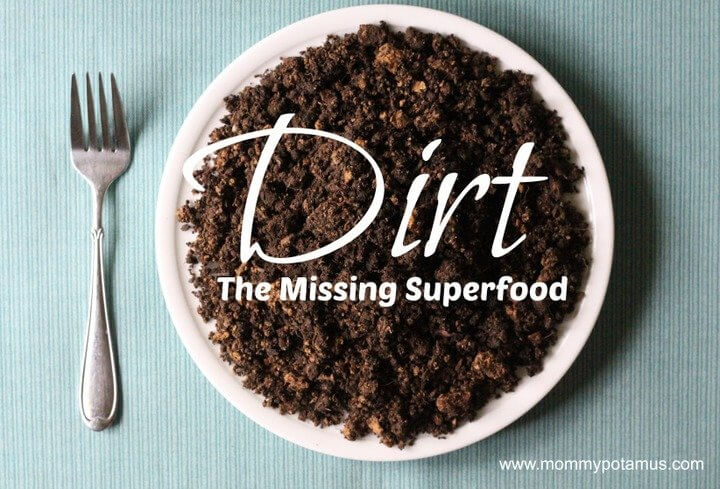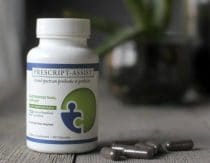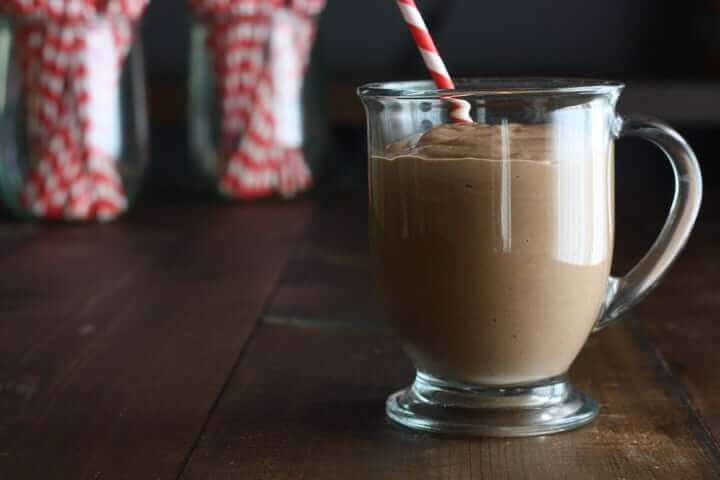
Do your probiotics wear hockey masks? How about knee-pads all wrapped up in a hard enteric coating? If you’re taking a probiotic supplement now, there’s about a 99% chance that your good guys need protective gear for a walk in the park. Today, I’m going to introduce you to the Chuck Norris of probiotics.
SBO’s, you. You, SBO’s.
Now before you start thinking an SBO is some new thing not to be mentioned in the presence of grandmothers and small children, I’m talking about soil-based organisms.
When someone says “probiotics,” most of us think of food: yogurt, water kefir, pickles, beet kvass, sauerkraut, etc. We might also think of other sources of beneficial bacteria – dairy or vegetable-derived probiotic pills. These types of bacteria are incredibly beneficial – I happen to have several in my fridge right now – but they have a couple of inherent weaknesses:
#1: They May Die Before You Consume Them
Lactic acid bacteria and bifidobacteria – the most common species found in foods and supplements – are notoriously sensitive to heat, light and pressure. When transported, they need to be refrigerated and/or shipped with ice packs during warm months to maintain optimum potency. Most manufacturers do not go to this trouble and instead estimate a percentage of die-off when they make claims about potency.
The problem is, this practice assumes that the bottles were not forgotten in a hot warehouse or semi-truck for a day, which is quite possible depending on the company and/or reseller who is stocking the product. And that, folks, is how you may end up paying top dollar for a completely dead probiotic! (*see the note at the bottom of this post for exceptions)
#2: They May Die After You Consume Them!
Something else to be aware of with these types of bacteria is that they don’t fare well in stomach acid, so not all will make it to the gut. While research indicates that even dead bacteria are beneficial to prime the immune system – their cell walls contain peptides that cause an uptick in immune modulation – live bacteria are unquestionably better.
I’m not saying these types of bacteria aren’t valuable – they absolutely are! I eat fermented foods everyday because I am convinced that what makes it to the gut is highly beneficial. But here’s the deal: I believe they’re meant to play a role in gut health, but they’re not the only beneficial bacteria available. While some manufacturers are inventing the equivalent of micro-hockey gear to keep lactic acid and bifidobacteria safe – patented nano-encapsulation and hard enteric coatings for example – they may overlooking a class of probiotics that naturally survives stomach acid.
A class that has been shown to induce an 82-100% remission rate in IBS patients within two weeks, for example. (source)
Folks, it’s time to meet Chuck’s cousin – Dirt.

Benefits of Soil-Based Probiotics
“We used to say everyone should eat a pound of dirt in a lifetime,” said the woman with the crinkly, smiling eyes. She’d caught my glance right after I gave my daughter “the nod” just a few feet from her farmer’s market stand. The nod, of course, was me letting my daughter know that it was okay to pick up the apple she’d dropped in the dirt and continue on. I smiled. My daughter smiled. And so did the woman behind the counter.
In Denmark, the saying is seven pounds a year, and in other places no one speaks of measurements at all, but many old sayings and practices promote the health benefits of dirt.
Now, you may have noticed that there is no recommended dietary allowance (RDA) for dirt on the U.S. Food and Nutrition chart, but don’t let that fool you. Science is finally catching up with what cultures around the world have known for generations: Dirt is a superfood.
Unlike lactic acid and bifidobacteria, most of the beneficial bacterial strains found in productive soil are extraordinarily hardy. They can survive heat, shock, and stomach acid, and most importantly they thrive in the environment that makes up the gut.
So what are the tangible benefits of SBO’S? Well, for starters . . .

Study: Dirt Can Make You Happier, Smarter, & Healthier
It won’t do laundry, though, so I guess we’ll just have to settle for the first three. According to studies conducted at Bristol University and Sage Colleges concluded that soil-based organisms make us happier and smarter, while other research shows they help regulate the immune system, reduce inflammation, break down our food for us, assist us with detoxification, and even bring out the best in use by influencing our genetic expression.
Plus, in this double-blind, placebo controlled study researchers found that IBS patients who took a soil-based probiotic experienced a significant reduction in symptoms after two weeks. A follow-up study found that the patients were still experiencing these benefits 1 year after discontinuing the probiotic, presumably because the beneficial bacteria stays in the gut and continues to function.
Researchers have also “correlated the high diversity of bacteria and fungi in household dust – from soil and farm animals – with the low likelihood of asthma” and allergies along with conditions like diarrhea. (source)
In other words, they’re one of the primary contributors to our health.
EXCEPT –
Well, except that most of us just don’t get enough dirt in our lives. This is true for many reasons:
- We rarely spend our days gardening or munching on produce pulled fresh from the earth
- Our culture is obsessed with disinfecting everything
- The top six inches of soil used to grow conventional crops is virtually dead
- Even organic produce usually comes to us after being thoroughly scrubbed
So what should we do? Get more dirt in our lives of course!
Before You Put Mud Pies On The Menu, Though . . .
It’s important to mention that not every organism in productive soil is friendly. Ideally, we develop immunity to potentially pathogenic organisms through gradual routine exposure. Children’s immune systems are primed for this process, but as adults it may take a little longer to adjust.
While I’m making a huge effort to get more dirt in my life (heck, I bought a farm!), I’m also taking a high-quality soil-based probiotic to ensure that my gut has an established set of beneficial soil-based organisms to help neutralize any unfriendly stuff I encounter.
Here’s where to find a high-quality probiotic
Disclaimer: This is not medical advice. Please talk to your trusted healthcare professional for personal advice on dietary changes and supplements. See my full disclaimer here.
*Certain technologies such as nano-encapsulation and hard enteric coatings may help preserve some potency loss while shipping.
This article was medically reviewed by Amy Shah, MD, Medical Advisor to Genexa through partnership with the Mommypotamus Team. As always, this is not personal medical advice and we recommend that you talk with your doctor.





Fantastic article! I’m definitely going to look into getting a soil-based probiotic for my gluten-senstive son who has an inflamed intestinal lining. When I clicked on the link to check out your recommendation, I could only see desiccated liver supplement. Can you post the link to the actual product, pretty please?
Hi Alicia! It’s called Prescript Assist and is sold by two of the retailers on that page – Radiant Life and Perfect Supplements.
Aha! Thanks, Heather. Off to check it out now 🙂
I couldn’t figure out where it was when I clicked on the link so i tried to find the best one on the market myself and found the same one lol! 🙂
I am not sure if the VGN premium membership is the same is a buying club. I got the membership but the offers are not the same. At least not ones that I see.
Yes, it’s the same thing! Perfect Supplements sells the soil-based probiotic I use (Prescript Assist) and they’re offering VGN Premium members 15% off this month.
What is the difference between taking a soil-based probiotic and Bio-Kult? It seems that multiple people recommend Bio-Kult, where as this is the first time I have heard or seen otherwise.
Would love to know this too! I take Bio-Kult because its supposed to be the best, I follow Western A Price and havent heard of the soil probiotic, would have thought if it was better that info would be out there!
I was eating a salad made from my farmer’s market produce while I was reading this and noticed that it was a little grimy from the dirt I missed-perfect timing! I have great memories as a child eating greenbeans right from the garden- dirt and all. Thanks for the great post!
What about the risk of soil based organisms becoming pathogenic? I read about it here: http://www.kitchenstewardship.com/2012/06/21/are-your-supplements-turning-into-deadly-pathogens-in-the-gut/
What are your thoughts? Did you come across anything like this in your research?
WOW! Why no reply? hum…i would think this may be worth investigating at the very least.
Tamra, I didn’t see the above comment until yours came through. On high comments days I am not able to read everything, but yours was posted on a lower comment day and I followed it back to the original. All that to say, the reason for no reply was that I didn’t know it was here 🙂
There is a discussion on this exact post in the comments above, but I will past here: “When I first heard about Prescript Assist the question of spore forming organisms was the first thing I thought of. However, after looking at the research I concluded that there is a huge difference between endospore forming organisms and ‘spore forming’ organisms. Prescript Assist contains only endospore forming organisms, which are inactive in the body. They wait until they are expelled to do their thing.”
Hey It was hard to tell from all the labels of Prescript Assist I looked up- so I thought I would just ask you. If there any fillers in these capsules of just pure “soil” powder? Thanks!!
Nope, no fillers, just a cellulose capsule! No milk, egg, fish, peanuts, shellfish, soy, tree nuts, wheat, yeast, corn, preservatives or gremlins 🙂
Does eating, or drinking benonite clay fall into this category? I’ve been poking around into the potential health benefits of that lately…….
I would say yes and no. Many people around the world – especially pregnant and nursing women – consume clay. It is thought to help mineral loss during pregnancy, and people of all ages use it for detoxification. However, the profile is much different than fertile soil in some ways, especially microbial content. Fertile tilth has a lot of active beneficial bacteria there to control yeast and mold – not so much with clay if I understand correctly 🙂
I have been taking Jordan Rubin’s line of probiotics with soil organisms in it called Primal Defence. When I first started taking it I had a massive herx reaction that lasted two weeks, but I pushed through. I read about why this happens & there must’ve been some imbalance as I was getting massive die off of more than likely pathogenic populations as the good guys brought these marauders under control. I have found it to be hugely beneficial & I think it is a high quality one.
This is a really cool post. Our son’s doctor was just telling us that farm kids have been proven to have fewer allergies and now I see why. I haven’t looked into soil based probiotics but we love to eat produce straight from the garden. It always tastes better at that fresh from the garden temp.
Heather,
I always love your stuff, and your research puts me to shame…but a reader emailed me and wondered my thoughts on the SBOs. I think she remembered this post I wrote last summer:
http://www.kitchenstewardship.com/2012/06/21/are-your-supplements-turning-into-deadly-pathogens-in-the-gut/
We’ve been taking the Miessence probiotic, which is totally different from anything else on the market. http://www.kitchenstewardship.com/2013/04/05/how-to-take-hide-a-powdered-probiotic/ and it helped me kick candida and seems to keep my hubby’s Crohn’s symptoms at bay, even when he eats the forbidden gluten. ??? That’s just anecdotal of course, but it’s nice to have something that makes a difference for us.
If you have a minute, read the SBO post and let me know what you think! I’m thinking the bottom line for both of us is the same: let them eat dirt. But maybe not supplements based on dirt for adults. ? I heard that Jordan Rubin has even taken almost all the SBOs out of Primal Defense now.
🙂 Katie
Hi Katie! Yes, I did read that post. When I first heard about Prescript Assist the question of spore forming organisms was the first thing I thought of. However, after looking at the research I concluded that there is a huge difference between endospore forming organisms and “spore forming” organisms. Prescript Assist contains only endospore forming organisms, which are inactive in the body. They wait until they are expelled to do their thing.
Heather, is this true for BioKult as well? I recently had it highly recommended by a friend, and that’s the main concern I have that’s held me back from purchase. Thanks! This is very helpful information! I LOVE your blog and so much of your research has been so helpful for me in our family’s health quest!
Kendra, Biokult is a lactic acid-based bacteria which based on my understanding function very differently than soil-based organisms. I’m not certain I understand your question correctly, but I would not be concerned about any issues with Biokult and “spore forming” organisms.
Hi I am two months pregnant and I would like to now is it safe to use FCLO . During my first pregnancy I have been useing omega 3 but now I hear many good things about FCLO. Thank you. Edyta.
Thanks!!! We will go down and munch on the strawberries – and feel good that they are eaten before they make it to the kitchen sink.
Very interesting post! I am hesitant to eat my organic veggies unwashed because many organic farmers use manure composts to fertilize the plants. Couldn’t you contract e-coli or something from the manure?
I’ve been eating miso, which I heard is cultured with an SBO, the same one that is in BioKult. This one seems safe to me since the Japanese people have been eating it forever.
I have read that dirt based bacteria in high doses can cure some uncureable things if they don’t kill you in the process . Don’t take high doses suddenly as an adult your body can reject them. Just going on what I read 🙂 I always leave a bit of the dirt on when I know it comes from a good source like bio dynamic carrots and eat veggies straight out the garden dirty hands and all.
Now I have a good excuse not to dust.
Pararsitic worm eggs are viable in soil for up to ten years though. Last year I found a 6″ long round worm in my toddlers diaper! Yuck! Like the kind dogs and racoons carry. We had to bring her to the doctor to get de-wormed. She’s a very healthy kid. Aren’t you concerned about internal parasites?
We live on a farm and I have a huge garden and high tunnel. I don’t stress too much about washing if we feel like eating some veggies while we’re outside, but am not okay with my youngest eating straight up dirt.
An above commentor mentioned organic farmers using animal manures and pathogens being a concern. YES, you should be concerned about pathogens like e-coli that are in animal manure. It happens. Don’t request that your organic farmer ‘doesn’t wash their produce’. You don’t know their farming practices and not washing their produce opens them up to lawsuits. I took a farm food safety class last year that certified me to sell my produce to schools and restaraunts, and the bleaching of shovels, sanitization of hands, and everything else they require for food safety was enough to make me not want to do it. And I use manure from my animals. It all seemed to risky. The point is that there is risk in eating, even organic, unwashed produce.
Just a thought. If one has to deworm, try Humaworm, which is completely herbal, and gives amazing results. If you have worms, it will expel all of them. Also, It’s easy to take (capsules).
hi. I remember you posted a book about dirt and eczema or skin trouble for kids. could u please provide the information for me??
Jordan S. Rubin talks about this in his book, The Maker’s Diet. He calls them HSOs and sells them through his company, Garden of Life here: http://www.gardenoflife.com/Products-for-Life/Digestive-Health/Primal-Defense.aspx He used them as part of his recovery from Crohn’s disease.
I have not used this product yet, and believe that the primary way we can all expose ourselves to dirt is to know our organic farmer (volunteer so you can work in the soil) and eat the veggies that are grown in pure, beneficial bacteria rich soil. Our children need to play in dirt that has not been sprayed with pesticides. Having them help you maintain your own garden is a good way to spark their interest in eating well, while exposing them to healthy soil as well.
Did you have any trouble starting this with bad die-off? I know I need probiotics, but even our old refrigerated ones came gave me some serious bloating problems. And the only way to get this naturally is by eating dirt, right? (I can see cows dancing around with signs that say “Eat More Dirt”)
Oops! Sorry for the bad grammar!
Thanks for this post! I have had serious intestinal troubles for years. I have seen several doctors and nothing seen to help. I just ordered these. Any relief would be wonderful. Do you have any other tips or advice?
Hi Heather,
I read this post about probiotics (from the SCD): http://pecanbread.com/p/tanya/bifidus.html
It says that bifidobacteria can easily overgrow, and that it gets even more complicated if you take SBO’s.
Do you know anything about that? Thanks 🙂
“Intestinal Floras of Populations That Have a High Risk of Colon Cancer
APPLIED AND ENVIRONMENTAL MICROBIOLOGY, Sept. 1995, p. 3202-3207 Vol. 61, No. 9
The study finds that populations with the highest colon cancer risk have a higher number of bifido bacteria than populations with the lowest risk. The authors were very surprised at this result since bifido bacteria is a “good” bacteria. Of course this is an epidemiology study (which always have flaws) but combined with Elaine’s knowledge on the subject sends a powerful warning in my mind.
t writes:
In the case of bifidus, it has a tendency to overgrow. Each type of bacteria has different properties, different byproducts… I usually think of it in terms of different levels of tenacity and agression. Your gut is truly a multicultural society – some member are more altuistic, and others are criminal. Some are interested in improving the neighbourhood, and some are only out for themselves.
L. Acidophilus is about as community-minded a bacterial strain as you will find, with S.Thermophilus and L.Bulgaricus running a close second. The others are either less friendly, or are unknown quantities. It gets even more complicated if you consider soil based strains.
This is really interesting…I’ll have to do some more reading on the subject…..
It also reminds me of a something that the market master of the farmer’s market we work told me once. He said that his mother always said that you need to eat nine pounds of dirt a year to be healthy….
I kind of believe it…. 🙂
It’s also an excellent source of parasites…
^hahaha
Becky McNeil – I discuss that in the last paragraph and also make a recommendation for a soil-based probiotic that provides many of the benefits of dirt for those who are more comfortable going that route.
I missed that! Thanks for the response!
I remember back to my dear Mother telling me this story~ Their first son was born in Portland and mom bathed him daily and keep him very clean. He was sick mostly. Her baby Doc. told her when he was about 3 years old, that he needed to be able to play in the dirt. So my parents packed up and bought a farm up in the Woodland hills. There they raised 4 boys and me, playing out side making mud pies! Mom said it made us all healthy! Funny~but true!
It’s amazing, isn’t it? I have 2 friends; one kept her child super duper clean, the other let her child crawl around in the dirt. The clean friend’s child has always been sick: colds, flu, ear infections, allergies, autistic symptoms… The ‘dirty’ friend’s child has never been sick (maybe only once during a very bad flu season). Her child is also happier and more well-adjusted at school. Interesting.
On a personal note, my brother was the firstborn and kept sparkling clean; I was often left to sit in dirty nappies all day. I also got to play more outside as a baby, whereas my brother was often kept indoors in a sparkling clean house. He’s always had more immune problems, with asthma etc, than me.
The only time in my life I never got sick, either bronchially or digestively, was the year I was working outdoors doing gardening and regularly swallowing dirt and dust on the air from my leaf blower. And I would often be in a short-sleeve top in near freezing weather.
I think it’s even more important to eat dirt with your butt than your mouth, as our ancestors sat on dirt floors with loin cloths etc, so our bodies are adapted to regularly taking in dirt through the colon.
Always test your yards dirt, you could have lead in your soil and your child could become very sick.
My baby got botulism from eating dirt. There are botulism spores in soil and in the absence of air (if they spend too much time in your child’s intestines) will produce the botulism toxin. Botulism destroys nerve endings resulting in paralysis. My baby stopped breathing withing 24 hours of initially lethargy (one of the first signs of botulism) and then spent 2 months in the hospital recovering. If you still want your kids to eat more dirt, do your research on botulism – one of the most potent toxins on earth.
Hi Michelle, My son also had botulism two months ago. I was worrying about the same thing when I read the article. The only thing that puzzles me is that my son NEVER ate dirt; nor honey. He was exclusively breastfed, only supplemented with Blue ice fermented cod liver oil and probiotics.
Hi Heather, do your children take this probiotic as well and if so, what dosage do you give them? I read your blog on supplements for kids with the recommended amount of probiotics for children however I can’t find how many billion microorganisms are in this prescript assist brand. I currently use Biokult and my 2 and 4 year old each take 1 daily as it’s easy to see how many billion per capsule they have. Thanks so much!
Hi Dena, I do give it to them. Right now I just give them about a quarter of a regular capsule, but I’m happy to say that they’ve got a kids chewable in the works right now.
Thanks for your response. That’s great news!
Hi Heather,
I’m wondering if it’s safe to try the Prescript Assist while nursing? And is it best to go slow with it?
Thank you!
Sara
Hi Sara, I am not able to give advice along these lines since I a not a healthcare provider, but you could check with the guys at Prescript Assist about their recommendations. I began using it before my last pregnancy – I used it throughout and am currently using it while I breastfeed. I did work up slowly when I introduced it. Hope that helps!
dirt the superfoods is a great idea but i think that it will be hard to follow since we don’t know how many good and bad bacteria actually have in our food!